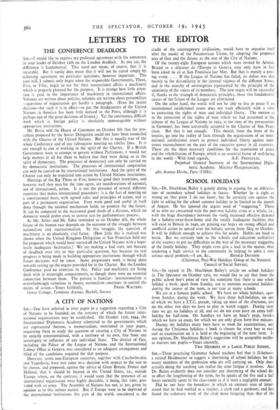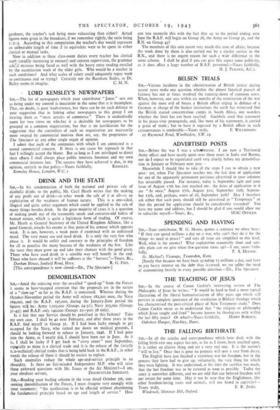SIR,—Three practising Grammar School teachers feel that it ill-behoves a
retired Headmaster to suggest a shortening of school holidays for the weary members of the profession who are still carrying on. Only those actually doing the teaching can realise the utter fatigue it involves. And Dr. Bailey evidently does not consider any shortening of the school day to offset the lengthening of the term, for he speaks of the five and a half hours normally spent in the class-room as if it were a negligible amount.
Did he not hear the broadcast in which an eminent man of letters stated that he had worked as a teacher, a clerk and a gardener, and had found the sedentary work of the clerk more fatiguing than -that of the gardener, the teacher's task being more exhausting than either? Actual figures were given in the broadcast, if we remember rightly, the ratio being 1:2:5. According to this computation the teacher's day would represent an unbearable length of time if its equivalent were to be spent in either clerical or manual tasks.
Now in addition to these class-room duties every reacher has clerical work (steadily increasing in amount) and canteen supervision, the grammar sche.al mistress being faced as well with the heavy extra reading entailed by the examination work of the older girls. Who would be a teacher in such conditions? And what scales of salary could adequately repay work so continuous and so trying? Certainly not the Burnham Scales, as Dr.



























 Previous page
Previous page